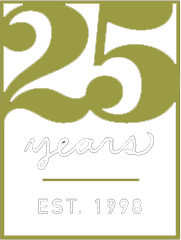700 words on a computer screen.
Getting someone to open the document is the first challenge, but once they have shown that initial interest, what story will those 700 words tell? Will the person change their mind after the first paragraph? Will they first skim read the job titles and work dates? Does the structure allow them to perceive your worth at a glance, whilst letting them delve deeper should they wish? Will they come away with a sense that they don’t quite know you?
Or will they get drawn into your compelling life story?
A resume that tells the story of your career from your heart is far more than a collection of targeted adjectives, industry buzzwords, and career clichés. It takes the reader on a journey and allows them to experience the twists and turns along the way. You leave them in no doubt with details of your tangible achievements. Your language can also invite them to read between the lines of your deeper motivations.
The best resumes leave people with a “feeling” about you, as if they have just accompanied you on a trip down memory lane filled with warm memories and forgotten triumphs. Conveying this in written form is not easy. I believe that a good resume writer is worth their weight in gold, but there is no reason why anyone can’t do it themselves. I am no expert, but here are a few of the things that I notice in a well-written career story:
Does your resume have a natural flow? A natural flow keeps you reading
The start of any story is critical to capture your imagination. From the moment you read the first line, a compelling resume should hook you in. Each role should be seen as a separate chapter, and ideally, each chapter should be that bit more compelling than the previous one. If the reader understands your career as a progression, they will assume that your next step with them will be at an even higher level.
Your resume should have a focus on your passions
Space is at a premium, and it is tempting to pack your resume with practical achievements, that’s the safe approach. Unless you are going for an identical role, the resume real estate would be far better used describing why you loved what you did rather than details about what you did.
Clear and concise language is powerful
The right word in the right place can set off all sorts of positive associations. A simple message doesn’t need to be qualified with any kind of clarification. Give the reader space to take it in and don’t fill their heads with your flowery interpretations. Less is definitely more.
Write your resume as if you already have the job
If you picture yourself as already working in that dream job, your resume will read like a description of why you are already ready rather than a sales document about why you believe you are. The verbs will be different, the grammatical tenses will be different, and the reader will sense that you could be one of their colleagues rather than someone aspiring to be a colleague at some magical point in the future.
When writing your resume, be true to who you are
Through the whole process, you should remain true to who you are. If you spend enough time filtering, rewriting and amending your story, those golden nuggets of experience will shine through soon enough.
Lastly, write it for yourself rather than for others, a proud testimony to everything that you have achieved. If you can read it through with a smile on your face (rather than a grimace), you know that you will have done yourself proud.
Insight Recruitment is also pleased to offer this 5-minute video to help your resume reflect who you are. To view our current openings, click here.


